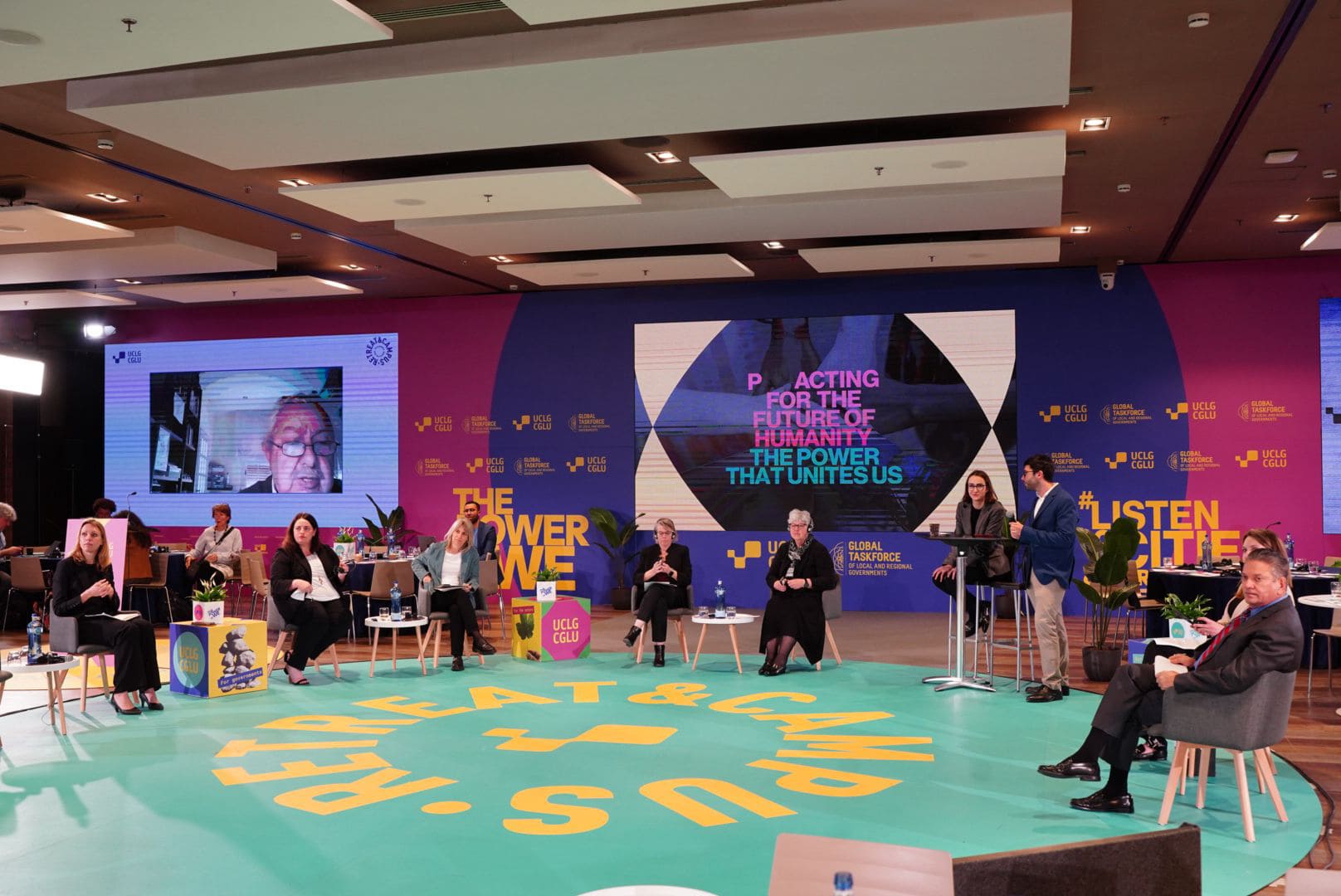Building on the UCLG Future Envisioning Exercise on the Building Blocks for Peace from January 2024, the third day of the 2024 UCLG Retreat saw a passionate and empathetic debate about how local governments can contribute to peacekeeping efforts. The panel was composed of members of UCLG and partners who contributed to the peacebuilding agenda of the World Organization, including through the Future Envisioning Exercise, intending to contribute to the peacebuilding aspect of the United Nations Pact for the Future and the United Nations New Agenda for Peace.
Aldo di Piazza, Health Advisor at the Lampedusa e Linosa Comune, started by sharing his experience from a Mediterranean island that receives 110,000 migrants and refugees annually. “Getting together with other stakeholders is the first step, and solutions are complicated. But considering the harsh realities, it is beneficial to work together on a more human approach to people who risk their lives by fleeing their places of origin.”
The Mayor of San José and Co-president of UCLG, Johnny Araya, gave an inspiring talk about how Costa Rica declared peace to the world many years ago. “We want a country that has more teachers than soldiers,” he quoted the founders of this idea. Costa Rica is now the only country in the world with no army. “We have declared perpetual, active, non-armed neutrality, and we understand that peace is not only the absence of war, but also harmony, coexistence with social justice, and equal opportunities.” He explained that peace in cities is not only broken by conflict or war; it is also broken by social violence, crime, or drug trafficking. “The most sustainable answer to face these challenges is not a police force, but it is prevention. We need to have a model of society that is more inclusive to fight poverty and inequality.” Local governments can often help contribute to a model focusing on prevention by fostering inclusion and citizen participation.
Kelsey Paul Shantz, Co-Facilitator of Peace in Our Cities:
“Solutions and proaches to significantly reduce severe violence already exist. Cities are central in achieving such reduction and require access to information.”
Laura Neuman, Senior Advisor at the Carter Center:
“The more we think about multilateral organisations, the more we realise they need us.”
Fabiana Goyeneche, Director of International Relations of Montevideo:
“Not everyone is represented in this discussion about peace, so we need to continue working on this.”
Alba Barnusell, Mayor of Granollers and Vice President of Mayors for Peace:
“Our duty as mayors is to do what we can locally in our cities, working for peace.”
Allison Curtis, Deputy Executive Director of Strong Cities Network:
“Over 3 billion people will participate in elections in the next two years. Local governments have a crucial role in both preventing and responding to hate, extremism and violence.”
Renske Steenbergen, Deputy Director of VNG:
“We need to address not just conflict but also the availability of resources to ensure that local communities are involved and can access the necessary resources.”
Carola Gunnarsson, Special Envoy for Freedom, Solidarity and Fighting Violence against Local Political Leaders, UCLG Vice President for Europe, Vice President of SALAR:
“Every attack on human rights is an attack on our safe societies. Talking about peace is not just the absence of war and armed force; it is democracy, human rights, gender equality, freedom.”


 This publication was produced with the financial support of the European Union. Its contents are the sole responsibility of UCLG and do not necessarily reflect the views of the European Union.
This publication was produced with the financial support of the European Union. Its contents are the sole responsibility of UCLG and do not necessarily reflect the views of the European Union.